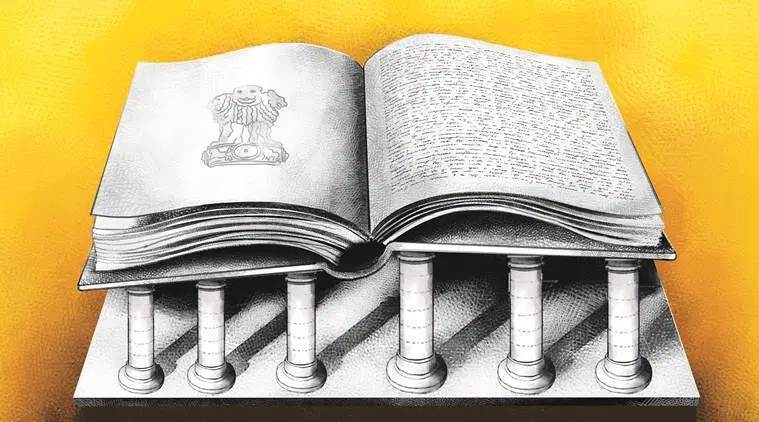 |
| Image from Indian Express |
India is a vast country accommodating an abundance of sociologically variant groups, co-existing in glaring inequalities. It is an indisputable fact that one of the key factors to bring a change towards the positive direction, in terms of lifting the seeming parlance of equality into something that actually exists, is the nature of the government, playing an important role in steering the country towards development. And, it resonates clearly that a coalition is much more effective in creating a change that is harmonious to development.
Why is it right to think that a coalition government possesses the potential to reconstruct the steep pyramid of inequality into a platform of equality accessible to all? There are a numerous reasons to the same, but considering the scope of this essay, two concerns that very important for India shall be analysed.
The first concern where the coalition government walks over a single party government is the field of economic development. The economy of India can be characterized as a developing mixed-economy. The 1990s in India is rightly termed as the ‘Era of Coalitions’. The ex-RBI Governor Dr. Venugopal Reddy, in a speech to the audience from Hudson Institute, Washington, USA, said that the highest growth in India from 1990 to 2014 was clearly during coalition governments. The consensus-based decisions that happen in a coalition government greatly help in the Indian context. A coalition produces better economic results than a single party with a strong majority. When the economic status of the country progresses, it is an empirically proven point that gender equality is promoted and the gender gap is reduced, with the right policies in place. Thus, the country inches closer to, not one, but two prominent ideals- economic development and gender equality.
The second concern addressed by a coalition, better than a single party, is that of social stratification. The fact that a coalition government is an amalgam of multiple parties with widely varying ideologies is often considered a defect. It is seen as a hurdle to progress because of the long-drawn process of framing policies, incorporating all their ideologies. But, it is important to note that the same may be seen as one of the greatest strengths of this form of government. The varying ideologies bring out balanced policies, and ensure that they do not act as a boost to just one or few sections of the society. By framing policies that are less discriminatory and more accommodating, it is only a natural consequence that the gaps of social stratification will begin to close slowly but steadily.
All systems have their own merits and defects. So, how do we decide which system is better? One method is looking into the matrix of risks versus benefits. When benefits outweigh risks, it is upto us to step up to the challenge of deciding to create a positive change. For a country like India, equality is still a far away goal, and a coalition government might be the first little right step towards it.
I wrote this essay for an event, but eventually did not send it through. Arguments for and against a coalition government is clearly possible, and this essay was written from the standpoint of the topic we were given: The Power of Coalition.
No comments:
Post a Comment
Thank you for your comment! If you enjoyed reading my blog, you can subscribe to read in your inbox! Cheers!